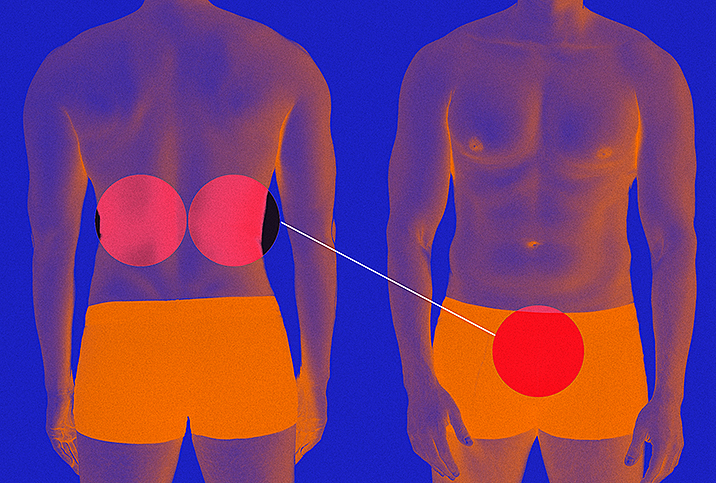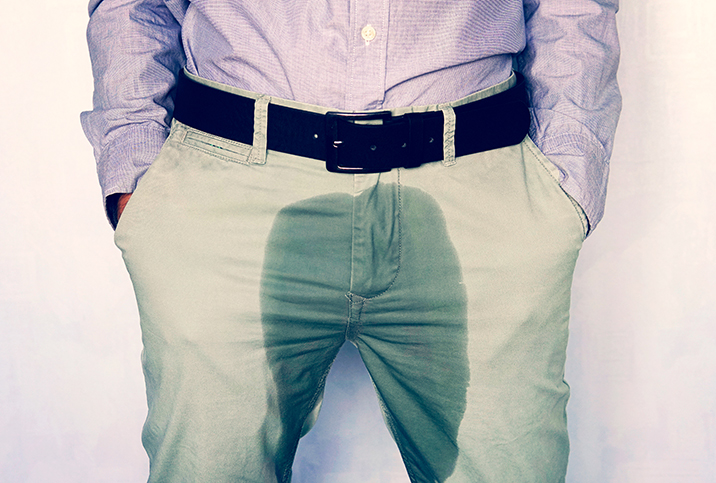Another Reason to Keep Your Kidneys Healthy: Erectile Dysfunction

Erectile dysfunction (ED) has many underlying causes, and one that may surprise some people is kidney disease. For men suffering from both conditions, stress, anxiety and depression can follow as a result. Yet all is not lost. By understanding the connection between the two conditions and your treatment options, you can alleviate ED and live a fulfilling sex life.
The relationship between kidney disease and ED
ED is prevalent among 80 percent of patients with chronic kidney disease, according to the World Journal of Nephrology. This high incidence is the result of several conditions, all or some of which may affect each patient. The most common causes include:
- Many kidney disease patients have narrowed blood vessels throughout their body, including in the penis, and poor blood flow affects erections.
- Anemia, or a lack of healthy red blood cells, can restrict blood flow to the penis and lead to fatigue, which can curb sexual desire.
- Nitric oxide, which is naturally produced by the body, helps blood flow, but its production is restricted in people with kidney disease.
- Psychological issues as a result of kidney disease.
- Disruption of sex hormones in the blood supply, which may include low testosterone.
Minimize ED if you have chronic kidney disease
Since kidney disease and ED have many links, communication with your doctor is critical. Through these candid discussions, you can find treatment among these options:
ED pills
Over the past two decades, options for ED medication have multiplied. Choices include sildenafil (Viagra), avanafil (Stendra), tadalafil (Cialis) and vardenafil (Levitra). Consult your doctor to see which option will work best for you. Natural solutions for ED, such as vitamins and supplements, may also help you overcome ED.
Penile injection therapy
Penile injection therapy has become a popular choice for patients with chronic kidney disease. This nonsurgical approach to ED is self-administered through an injection to the base of the penis. The penis becomes erect almost instantaneously, and you're able to keep your erection for one to two hours.
Penile insertion therapy
Penile insertion therapy requires you to insert an applicator into the tip of the penis. Then, a button releases a small tablet of medication into the penis to achieve an erection. Surprisingly, discomfort is minimal and the therapy is highly successful.
Wearable therapy
Another treatment method is a wearable constriction or vacuum device. Some medical-grade wearables such as Eddie by GiddyⓇ are proven effective in maintaining erections, without the side effects of ED medications. It is placed at the base of the penis and keeps blood from exiting the penile tissue.
Vacuum-based therapy for ED in kidney disease patients is successful in many cases. The vacuum device consists of a plastic cylinder that's placed over the penis. The user then uses a manual or electronic pump to create a vacuum and slides a tension ring to the base of the penis. After the tension ring is in place, the cylinder is removed, and the erection typically lasts for about 30 minutes.
Do treatments for kidney disease contribute to ED?
Dialysis and medication are two of the most common treatments for kidney disease, and both may directly or indirectly lead to erectile dysfunction. For example, dialysis may not cause ED directly, but the fatigue caused by the treatment can lead to a lack of sexual desire. Dialysis may also make getting or maintaining an erection difficult if the treatment doesn't remove enough toxins or causes anemia.
Medications often used to treat kidney disease can also lead to ED. Beta blockers, diuretics and other antihypertensive drugs can reduce blood flow to the penis. If you believe this may be causing ED, consult your doctor to see if they can suggest alternative medications.
Stay strong through it all
Although kidney disease is draining enough on its own, ED adds more layers of physical and psychological issues that can exacerbate the problem. But remember that you aren't alone. With support groups, open communication with your doctor and loved ones and a bit of trial and error, you can maintain the sex life you had before your kidney issues.
















